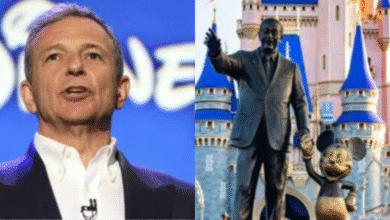Ex-Disney Attorney’s ‘Hatred’ Lawsuit Sparks Major Backlash
What This Means for the House of Mouse
A former Disney attorney is taking the House of Mouse to court over what they claim is discrimination based on gender.

Picture this: you’ve built a nearly 20-year career inside the world’s most iconic entertainment empire, climbing the ladder in a high-stakes legal department. Then you discover a colleague with the same credentials not only outranks you—but also makes more money. That’s the claim behind a new lawsuit filed against Disney.
Former Disney attorney Alisa Clairet is challenging the company with accusations of unequal pay, retaliation, and wrongful termination. Her case isn’t just about numbers on a paycheck—it’s about whether one of the most powerful companies in Hollywood has been ignoring its own standards of fairness.
In this piece, we’ll break down what’s in the lawsuit, what it means for Disney employees and fans, and why the case could signal an industry-wide shift in how companies handle gender equity.

The Lawsuit: Allegations Against Disney
Clairet’s complaint, filed in Los Angeles Superior Court, accuses Disney of violating California’s Equal Pay Act and other workplace laws. She alleges that despite years of service—beginning with Buena Vista Home Entertainment in 2004 and later with Disney ABC Cable Networks Group—she consistently earned less than male colleagues.
Highlights from the lawsuit include:
-
Pay Disparity – Clairet says a male peer was hired at a higher salary with a loftier title, despite similar qualifications.
-
Promotion Without Pay – When a vice president corrected the title issue, her salary remained unchanged.
-
Retaliation & Termination – After years of voicing concerns, Clairet says she was ultimately cut in September 2024 during budget reductions—while her male counterpart kept his job.
By 2016, she had been tapped to co-lead legal affairs at Disney Channel. Yet, according to her suit, her colleague kept his raise and office perks, even after being demoted, while she remained underpaid until her exit.

What It Means for Disney Employees and Fans
If Clairet’s claims hold, it points to larger issues in corporate culture—namely how complaints are handled when employees speak up. She alleges human resources did little to address her situation, raising questions about accountability.
For fans, the lawsuit may feel jarring. Disney’s brand is built on stories of fairness, courage, and justice. Allegations of gender-based pay inequality present a stark contrast between the company’s on-screen ideals and its workplace practices.

Behind the Curtain: Workplace Equality in Focus
The entertainment industry has long wrestled with gender pay gaps—and Disney isn’t the only company under scrutiny. Clairet’s lawsuit underscores how long-term employees can feel sidelined despite loyalty and achievement.
Insiders suggest this case could inspire other workers to revisit their own contracts, raises, and HR histories. With the spotlight on Hollywood labor practices in recent years, this lawsuit adds fuel to ongoing debates about equity and representation.

Why It Matters Beyond Disney’s Walls
Clairet’s case resonates beyond the studio lot. It raises vital questions:
-
Can employees truly advocate for themselves without risking retaliation?
-
How should HR departments respond when complaints involve senior leadership?
-
And what responsibility do major brands have to embody the values they sell?
If the case succeeds, it may push other companies to conduct internal audits, close pay gaps, and strengthen protections for whistleblowers.
Regardless of the verdict, the lawsuit has already sparked conversation. For Disney, it’s not just a legal battle—it’s a test of public trust. For employees and fans alike, it’s a reminder that behind every magical brand are real people whose work deserves fairness, respect, and equality.





Disney would not know fairness or equality if its bosses were slapped in the face with it, every morning on the way to their overpaid jobs.